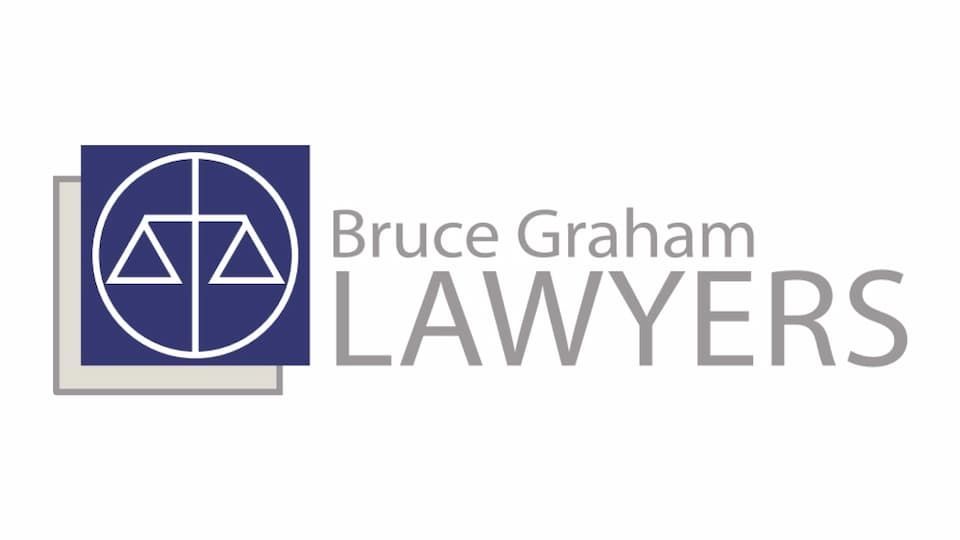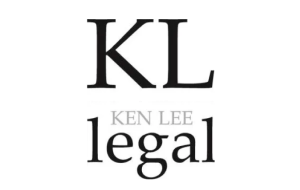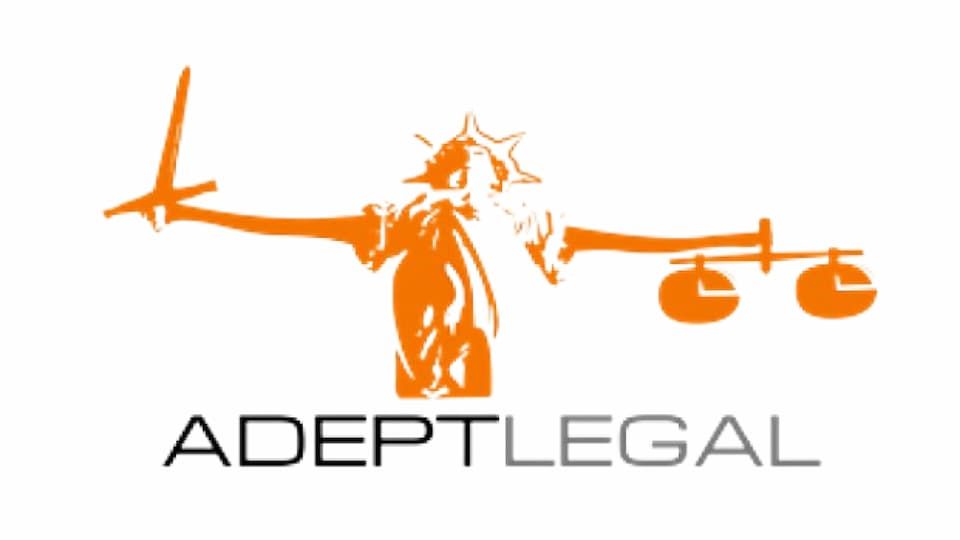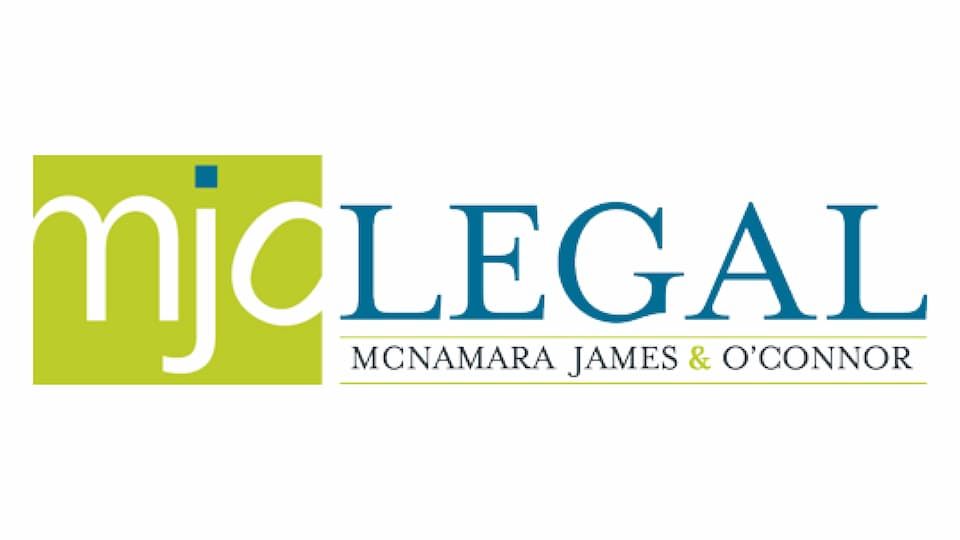
A Practical Perspective for NSW and Queensland Matters In New South Wales and Queensland, the legal profession is fused. Both solicitors and barristers are qualified legal practitioners, and there is no procedural requirement to brief counsel at any particular stage of a matter. That often leads clients to delay the decision. In practice, the question is not whether a barrister is required, but whether the matter has reached a point where the risks involved justify specialist advocacy and advice. Engaging a barrister is not a sign that a dispute has escalated beyond control. It is a strategic decision about how that dispute should be managed. What a Barrister Actually Brings to a Matter Barristers are commonly associated with court appearances and trials. In reality, much of their value lies well before a matter reaches a hearing. They are trained to analyse risk, test legal arguments, and anticipate how a court is likely to respond to a case as it develops. Early involvement often focuses on advising on prospects, settling pleadings, shaping evidence, and identifying which issues genuinely matter. In many cases, this prevents problems that become expensive or impossible to correct later. The Importance of Timing One of the most common points at which counsel should be considered is before pleadings are finalised. Once pleadings are filed, positions harden. Admissions may be made inadvertently, causes of action may be poorly framed, and procedural vulnerabilities may be exposed. Fixing these issues later usually involves contested applications and additional cost. Similarly, when interlocutory applications are threatened or underway, the stakes increase quickly. Applications such as strike-outs, summary judgment, or injunctions can determine the direction of a matter long before trial. These are moments where technical precision and courtroom experience matter. Another common trigger is when a dispute turns on a narrow or unsettled point of law. Some cases are fact driven. Others are decided almost entirely on statutory interpretation or competing authorities. Where that is the case, specialist advice is not a luxury – it is essential. Costs Risk and Commercial Reality Litigation is not just about the merits of a claim. It is also about costs exposure. As matters progress, the financial consequences of getting strategy wrong increase. A barrister can provide clear advice on when to push forward, when to reassess, and when settlement should be actively pursued. There is a persistent misconception that briefing counsel necessarily increases costs. In practice, targeted advice at the right time often reduces overall expenditure by narrowing issues, avoiding unnecessary applications, and strengthening settlement positions. NSW and Queensland Considerations While the core principles are consistent across jurisdictions, procedural culture differs slightly. In New South Wales, courts tend to scrutinise pleadings closely and are more receptive to early dispositive applications. This often makes early engagement of counsel particularly valuable. Queensland courts are generally more pragmatic in their approach to case management, but the risk profile still shifts sharply once a matter moves beyond informal negotiation or becomes procedurally complex. In both jurisdictions, the underlying question remains the same: what is the consequence if the current approach is wrong? A Collaborative Model Engaging a barrister does not mean the solicitor steps aside. The solicitor remains responsible for carriage of the matter, evidence gathering, and client communication. Counsel provides a complementary skill set: strategic distance, advocacy experience, and deep familiarity with how courts approach particular issues. The most effective outcomes are usually achieved where solicitors and barristers work together early, rather than when counsel is briefed reactively on the eve of a hearing. Conclusion There is no fixed rule as to when a barrister should be engaged. However, most disputes reach a point where the risks – legal, procedural, or financial, change materially. At that point, the real question is not whether engaging a barrister is necessary, but whether proceeding without one is a risk worth taking. Disputes can arise in everyday life – with neighbours, family members, business partners, landlords, builders, or customers. Often, they start small and quickly become stressful, emotional, and hard to manage. Our litigation team helps you understand your options early, cut through the noise, and work towards the best possible outcome by providing the necessary advice and action. Don’t face the situation alone, talk to CJM Lawyers today!

Buying a business is an exciting venture, but the legal "to-do list" looks different depending on which side of the Tweed River you are on. Whether you’re eyeing a café in Surfers Paradise or a boutique in Byron Bay, navigating the transition from the current owner to you requires a sharp eye on the details. Here are the four key areas where the rules change between Queensland and New South Wales. 1. The Contract of Sale In Queensland, we typically use the REIQ Business Sale Contract. In NSW, it’s common to use the Law Society/Real Estate Institute version. While both cover the basics, they handle "dispute resolution" and "vendor warranties" (the promises the seller makes about the business) differently. With years of experience in commercial law, CJM Lawyers will ensure the contract is tailored to the specific laws of the state where the business is located. 2. The Lease: Your Business's Home The lease is often the most valuable asset you’ll take over. In QLD: The Retail Shop Leases Act has very strict rules about "Disclosure Statements" that the landlord must give you. In NSW: The Retail Leases Act applies, which has its own specific timelines and forms. If the landlord doesn’t provide the right paperwork at the right time in either state, it can lead to massive headaches or even the right to walk away from the lease later. Both Acts play a crucial role in preventing any hidden issues from the landlord and assignor that could surprise you after a transfer or the start of a lease. CJM Lawyers, as a trustworthy solicitor, will ensure that all necessary disclosures are made before you make a decision. 3. The "Tax Trap": Transfer Duty This is the biggest difference between the two states: Queensland: You generally still have to pay Transfer Duty (stamp duty) on the value of the business assets (like equipment and goodwill). This is an extra cost you must budget for. NSW: In most cases, NSW has abolished stamp duty on the transfer of "intangible" business assets like goodwill. However, you might still pay duty if the sale includes land or certain other interests. With CJM Lawyers, experienced in commercial transactions across both jurisdictions, we help you understand the nuances to avoid unexpected late penalties or potential legal actions from the state revenue office. 4. Taking Over the Team (Staff) While the Fair Work Act is national, the way we "adjust" the price for employee leave at settlement is a matter of contract. Specifically, the REIQ contract usually grants a 70% credit to the Buyer for accrued leave on its standard terms, while NSW’s law society or REI contract may not be explicit in this regard in detail. Regardless of the difference, it is still open to negotiation between you and the seller. We, CJM Lawyers, make sure that if you are taking on staff who have years of accrued long service leave or annual leave, the seller gives you a fair discount on the purchase price, so you aren't left footing the bill alone later. How We Can Help Mastering both QLD and NSW means we understand the nuances of both systems. CJM Lawyers will act as your advisor, identifying risks like hidden debts on equipment or tricky lease terms, before you sign on the dotted line. If you’re considering buying a business, early legal advice can save you time, money and stress. Contact CJM Lawyers today to start the conversation.

If you hold (or want) a pilot licence , a drink driving charge isn’t just a traffic matter, it can put your medical and flying privileges under the microscope. The smart move is to get advice early, before making any aviation disclosures. Why this matters (even if it happened on the road) Aviation is conservative for good reason. Any alcohol related offence can raise questions about fitness to fly, which may lead to: Medical scrutiny (extra checks, temporary conditions). Short-term flying restrictions while assessments occur. Career and insurance impacts, particularly in commercial roles . We’re not saying your flying days are over, just that it’s both a legal and aeromedical issue from day one. Three costly myths: “It’s only a driving issue.” For pilots, it becomes an aviation issue quickly. “No conviction recorded = no problem.” Outcomes short of conviction can still trigger medical reviews and suspensions . “If I don’t report it, it goes away.” Missing a reporting obligation can be worse than the incident itself. If this happens, keep it simple and strategic: Call us first. We’ll help you meet your reporting obligations on time, in the correct form, and with clear, relevant facts. Coordinate with a Designated Aviation Medical Examiner (DAME) for a practical medical plan. Document sensibly (any counselling, test results, timelines) to support a return to flying pathway. Expect a pause, not necessarily a full stop. Many pilots return with structured steps and credible evidence. How we help: Clear pathway back: Legal, medical and practical steps aligned. Risk management: What to report, when, and how. Career protection: Engage with regulators, employers and insurers the right way. A realistic outlook Plenty of pilots resume flying. Success usually comes down to early advice, credible records, and compliance. Safety is the regulator’s north star; our job is to present your case clearly and keep momentum. Need guidance? CJM Lawyers advises pilots and operators on aeromedical and regulatory issues arising from drink driving charges. Speak to our Aviation Law team promptly so you meet any reporting obligations on time and in the correct form. General information only. This is not legal advice. Your circumstances will determine your obligations and options.

Testamentary Trusts are powerful estate planning tools that deliver substantial tax savings and robust asset protection for your beneficiaries. This guide explores the key advantages of incorporating a Testamentary Trust into your estate plan and demonstrates how this strategy can preserve and grow your family's wealth for generations to come. A will is a legal document that allows you to control what happens to your assets after you pass away. As the testator (the person making the will), you can specify how your estate should be distributed among your chosen beneficiaries. Beyond asset distribution, your will also names the executor—the person or people you trust to carry out your wishes and handle the administration of your estate. What is a Testamentary Trust? A Testamentary Trust is a sophisticated estate planning tool that operates through your will. Unlike a standard will that distributes assets directly to beneficiaries, a Testamentary Trust holds some or all of your assets in a trust structure after your death. This structure provides ongoing protection and management of your wealth for the people you care about most, your beneficiaries. How does a Testamentary Trust Work? When you pass away, the Testamentary Trust automatically comes into effect as outlined in your will. Rather than receiving assets outright, your beneficiaries become entitled to distributions from the trust. The trustee you've appointed in your will takes on the responsibility of managing the trust assets and making distributions according to your instructions and the beneficiaries' needs. Significant Tax Advantages One of the most compelling reasons to consider a Testamentary Trust is the substantial tax savings it can deliver for your beneficiaries. These benefits are particularly valuable when your beneficiaries either earn high incomes or include children under 18 years of age. How the Tax Benefits Work Under Section 102AG of the Income Tax Assessment Act 1936, income distributed from a Testamentary Trust qualifies as "excepted income." This special classification allows your beneficiaries to access the tax-free threshold on trust distributions—a significant advantage not available with standard discretionary trusts, where distributions to minors above $641 are typically taxed at penalty rates equivalent to the top marginal tax rate. Key Benefits of Testamentary Trusts Asset Protection - Trust assets are generally protected from beneficiaries' creditors, relationship breakdowns, and poor financial decisions. Flexibility - Trustees can adapt distributions based on beneficiaries' changing circumstances, such as education needs, health issues, or life stages. Tax Efficiency - Testamentary Trusts can provide significant tax advantages, including income splitting opportunities and concessional tax rates for minor beneficiaries. Control from Beyond - You maintain control over how and when your assets benefit your loved ones, even after your death. Is a Testamentary Trust Right for You? Testamentary Trusts are particularly valuable for families with: Young children or grandchildren Beneficiaries with disabilities Complex family structures Significant assets requiring ongoing management Concerns about beneficiaries' financial responsibility Who Benefits Most from These Tax Advantages? High-Income Beneficiaries - Trust distributions can be allocated to lower-income family members, reducing the overall tax burden. Families with Minor Children - Children can receive distributions using their full tax-free threshold, rather than facing penalty tax rates. Multi-Generational Wealth Transfer - Income can be distributed strategically across family members to optimise tax outcomes year after year. Long-Term Financial Impact - These tax savings compound over time, potentially saving your family tens of thousands of dollars annually while preserving more of your wealth for future generations. For personalised advice on whether a Testamentary Trust suits your circumstances and to explore the specific tax benefits for your family, speak with our experienced estate planning team.

Why is IP Protection Crucial for Your Business? In today's fast-paced, innovation-driven economy, what truly differentiates a business isn't always tangible. It's often the unique ideas, the recognisable brand, the innovative processes, and the creative works – collectively known as intellectual property (IP) . For businesses of all sizes, from agile startups to established enterprises, protecting these intangible assets isn't just a legal formality; it's a strategy for long-term success and growth. In Australia, like anywhere else, a failure to proactively protect your IP can expose your business to significant risks, undermining your competitive edge and stifling your potential for expansion. Safeguarding Your Competitive Advantage Imagine dedicating countless hours and significant resources to developing a groundbreaking product or a distinctive brand identity. Without proper IP protection, a competitor could legally replicate your innovation or imitate your branding, directly siphoning off your market share. This isn't just about preventing direct copying; it's about building a legal "moat" around what makes your business unique. Trademarks protect your brand name, logo, slogan, and even unique packaging , ensuring that customers can distinguish your goods and services from those of competitors. A strong, protected trademark builds brand loyalty and trust. Trade Secrets cover confidential business information that provides a competitive advantage , such as proprietary formulas, customer lists, or manufacturing processes. Maintaining their secrecy through robust internal controls and agreements is key to their protection. By securing these rights, you gain the legal standing to deter infringement and take action against those who try to unfairly capitalise on your hard work. Attracting Investment and Enhancing Business Value For startups seeking funding or established companies looking for expansion capital, a strong IP portfolio is a powerful magnet for investors. Venture capitalists and lenders increasingly view IP as a critical asset, reflecting a company's innovation, market potential, and reduced risk profile. A robust IP strategy signals that your business is not only innovative but also strategically sound and legally protected. IP assets can significantly enhance your business's overall valuation. Imagine a tech company with a suite of patents covering its core technology, or a consumer brand with globally recognised trademarks; these assets add substantial value beyond physical property. In a similar vein, your trademarks can significantly enhance the value of your business. Generating Revenue Streams IP is not merely a defensive tool; it's an offensive weapon for revenue generation. Once your IP is protected, you can monetise it in various ways: Licensing: Granting others the right to use your patented technology, copyrighted material, or trademarked brand in exchange for royalties or fees. This can open new income streams without requiring expense from your side. Franchising: For businesses with strong brands and proven business models, IP protection is fundamental to successful franchising, allowing you to expand your footprint while maintaining control over your brand identity and operational standards. Sale of IP: Your intellectual property can be sold outright, providing a significant capital injection. Conclusion In the dynamic business landscape of today, intellectual property is no longer a niche legal concern but a core business asset. Prioritising its protection is fundamental to securing your competitive advantage, attracting crucial investment, opening new revenue avenues, and fostering an environment of innovation. By understanding and proactively managing your IP, your business can build a resilient foundation for sustainable growth and long-term success.

In the dynamic landscape of Queensland property , certainty and clarity are paramount. While most residential property contracts proceed smoothly from signing to settlement, there lies a subtle legal nuance that can dramatically alter the rights and obligations of both buyers and sellers: the instalment contract . Often unintentionally created, instalment contracts grant buyers several statutory protections in the case of a buyer’s default, which restrict a seller’s right to deal with the contract. What is an Instalment Contract? Under section 71 of the Property Law Act 1974 (Qld), an instalment contract is broadly defined as an executory contract for the sale of land where the purchaser is bound to make one or more payments (other than a deposit) without becoming entitled to receive a conveyance (transfer of title) in exchange for those payments. In essence, it's a contract where the buyer makes payments to the seller, which do not form part of the deposit over time before the property formally changes hands at settlement. The 10% Threshold and Beyond: A Critical Trigger The term "deposit" itself has a specific meaning within the Property Law Act. The Act provides that a deposit cannot exceed 10% of the purchase price (or 20% for off-the-plan sales). Where the deposit exceeds the prescribed percentage of the purchase price, the contract will be deemed to be an instalment contract, regardless of the intentions of the parties. A contract may also fall within the meaning of an instalment contract in the following circumstances: Additional Pre-Settlement Payments: Payments such as license fees, early possession fees, or any other amounts paid by the buyer to the seller before settlement, and separate from the deposit, can inadvertently trigger an instalment contract. Even a seemingly small, non-deposit payment can convert a standard contract into an instalment contract. Non-Refundable Deposits: While less common in standard contracts, if a deposit is structured to be non-refundable, particularly if released to the seller, it can be re-characterised as an instalment, thereby triggering the Act's provisions. The Unexpected Consequences: Why Sellers Must Beware For sellers, the inadvertent creation of an instalment contract introduces a suite of statutory protections for the buyer. It is important to be aware of these protections as they restrict how a seller may deal with a buyer’s default of the contract. These protections include: Restricted Termination Rights (Section 72 PLA): Unlike standard contracts, a seller cannot immediately terminate for a buyer's default under an instalment contract. The seller must provide the buyer with at least 30 days' written notice to remedy the breach before the seller may exercise a right of termination. The inability to immediately terminate an instalment contract will often have lasting delays from a seller who may be unable to enter into a subsequent contract, even where it is abundantly clear the buyer will be unable to complete the contract. Buyer's Right to Lodge a Caveat (Section 74 PLA): Under an instalment contract, the buyer gains an express statutory right to lodge a non-lapsing caveat over the property. This caveat prevents the registration of any other instrument affecting the title of the property until it is removed, potentially complicating any dealings with the land. Buyer's Right to Demand Conveyance (Section 75 PLA): Perhaps most impactful, if the buyer has paid one-third or more of the purchase price (and is not in default), the buyer can demand by written notice that the seller transfer the legal title to them immediately. It is however, a condition of the transfer that the seller be permitted to execute a mortgage over the property in favour of the seller for the remaining balance of the purchase price. This transforms the seller into a mortgagee and imputes the seller with all the associated risks and responsibilities as mortgagee of the property. Deposit of Title Deeds (Section 76 PLA): A purchaser can also require the vendor to deposit a duly executed transfer document with a prescribed authority (such as a solicitor) to be held in trust until the time for performance of the contract arrives, the contract is discharged by performance or otherwise, or upon an order of the court. Protecting Your Position The statutory protections imposed for the benefit of a buyer under an instalment contract can be significant for sellers, and may impact a seller’s financial liquidity, control over their property, and ability to enter into subsequent contracts following a buyer’s default. Unfortunately, it is often the case that instalment contracts are inadvertently entered into, and the statutory protections are enlivened without the knowledge or intent of either the buyer or seller. To avoid creating an instalment contract, particular care must be taken with: ensuring a deposit and any associated payments do not exceed the prescribed percentage of 10% (20% for off-the-plan purchases) of the purchase price; any agreements for additional payments under a contract prior to settlement, such as license fees or early possession payments, are separate from the contract; accepting non-refundable payments from a buyer when agreeing to extensions to critical dates in the contract that do not entitle the buyer to receive conveyance of the property. Before entering into any contract for the sale or purchase of residential property , we recommend seeking legal advice to ensure that you are not unknowingly entering into an instalment contract. Instalment contracts can present both opportunities and challenges in property transactions. This article aims to clarify those key points for you. At CJM Lawyers, we pride ourselves on offering clear, personalised advice to ensure your property dealings are smooth and secure. Our trusted property team can assist and guide you through contract reviews, negotiating terms, identifying any potential risks and protecting your interests. Speak to a member of our team today to help safeguard your investment. Disclaimer: This article provides general information only and does not constitute legal advice. It is essential to seek specific professional legal advice tailored to your individual circumstances.

Recovering unpaid debts is a critical concern for businesses and individuals alike. While some may attempt to recover debts independently, engaging a lawyer offers significant advantages that can enhance the likelihood of successful recovery and protect the creditor’s interests throughout the process. 1. Legal Experience and Strategic Guidance Lawyers possess a comprehensive understanding of debt recovery laws , including relevant statutes, regulations, and procedural requirements. They can assess the merits of a claim, advise on the most effective recovery strategies, and ensure compliance with all legal obligations, thereby reducing the risk of procedural errors that could jeopardize the claim. 2. Professional Communication and Negotiation A lawyer’s involvement often signals to the debtor the seriousness of the creditor’s intent to recover the debt. Lawyers are skilled negotiators who can engage with debtors professionally, increasing the likelihood of reaching a settlement without the need for litigation. Their ability to draft and send formal demand letters can prompt payment or constructive dialogue. 3. Efficient Litigation and Enforcement Should negotiation fail, lawyers are equipped to initiate legal proceedings efficiently. They can prepare and file court documents, represent the creditor in hearings, and pursue enforcement actions such as garnishments, charging orders, or asset seizures. Their familiarity with court processes ensures that the matter progresses without unnecessary delay. 4. Risk Mitigation and Compliance Debt recovery efforts must comply with laws and regulations. Lawyers can ensure that all actions taken are lawful, thereby minimizing the risk of counterclaims or regulatory penalties. 5. Maximizing Recovery and Cost Efficiency By leveraging legal tools such as statutory interest, costs recovery, and security interests, lawyers can maximize the amount recovered. Their ability to assess the debtor’s financial position and identify available assets further enhances the prospects of successful recovery. Conclusion Engaging a lawyer in the debt recovery process provides creditors with legal experience, strategic advantage, and procedural efficiency. This professional support not only increases the likelihood of recovering unpaid debts but also ensures that the creditor’s rights are protected throughout the process. Recovering unpaid debts can be stressful and complicated . After reading this article, know that CJM Lawyers is here to help you navigate the process with confidence. We tailor our approach based on your unique situation through practical and reliable support to help you recover what you’re owed. This can be done through negotiation, mediation, and/or legal action. Our team works closely with you to protect your rights and achieve the best possible result.

Protecting your intellectual property Last week, it was revealed that the US company behind the Oreo has commenced proceedings against Aldi. The US company alleges that Aldi has copied their distinctive Oreo packaging for its own chocolate sandwich biscuits, in a manner which is likely to mislead and deceive customers. This high-profile dispute is a timely reminder of the critical importance of intellectual property protection for your business. This case underscores the need to take proactive steps to safeguard your intellectual property. The team at CJM Lawyers can ensure that your business’ intellectual property is protected, including through the: 1) Registration of trade marks: This includes not only your brand name and logo, but also extends to aspects of your business which helps customers distinguish you from your competitors. 2) Licensing of your Intellectual Property: Where you wish to license your intellectual property to someone else, it is essential that you have a comprehensive agreement in place to ensure that each of the parties’ rights are clearly defined and protected. 3) Registration of patents: A patent serves to protect against your ‘inventions’. The registration of a patent over your products can be critical to ensuring that your products are protected from competitors seeking to copy your invention. 4) Resolution of Disputes: If you suspect your intellectual property rights have been infringed, it is important to act promptly to mitigate and limit any damage that the infringement may cause to your business. CJM Lawyers is experienced in all aspects of intellectual property protection and enforcement. If you have concerns about your intellectual property or believe your rights may have been infringed, please contact us to discuss how we can help you protect your most valuable business assets. Disclaimer: This article is for general understanding and should not be used as a substitute for professional legal advice. Any reliance on the information is strictly at the user's risk, and there is no intention to create a lawyer-client relationship from this general communication.


















